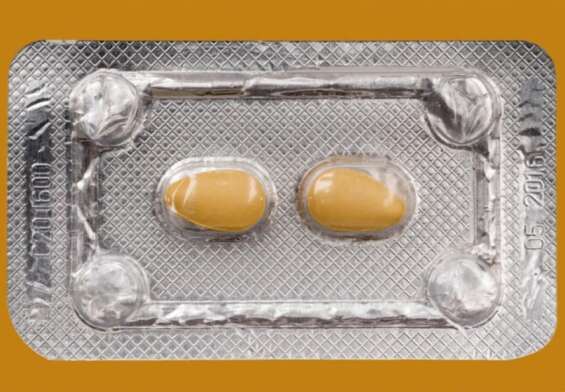
Hyperspermia: Causes, Diagnosis, and Treatment Options
Hey there, FitGAG readers! Are you curious about the male reproductive system and want to learn more about a condition that affects many men worldwide? Look no further than this article on hyperspermia! This condition, characterized by excessive semen production, can have a significant impact on a man’s life, from his fertility to his sexual and emotional well-being. In this article, we’ll delve deep into the causes, symptoms, and treatment options for hyperspermia, as well as debunking some of the most common myths and misconceptions about this condition.
What is Hyperspermia?
Hyperspermia is a medical condition that refers to the production of an abnormally high volume of semen during ejaculation. Typically, a man produces between 1.5 to 5 milliliters of semen during ejaculation, with each milliliter containing millions of sperm. However, in the case of hyperspermia, a man may produce more than 5 milliliters of semen during ejaculation, which can have various implications on his health and fertility.
Understanding Sperm Production and Volume
Sperm production and volume are critical components of male reproductive health. However, there are many misconceptions and misunderstandings about how these processes work. To clear up any confusion, let’s take a closer look at the basics of sperm production and volume.
In this section, we’ll explore the normal range of sperm volume and concentration, as well as the factors that can affect sperm production and volume. By the end of this section, you’ll have a better understanding of how the male reproductive system works and what factors can impact sperm production and volume.
So, let’s dive in and separate fact from fiction when it comes to understanding sperm production and volume.
Normal Sperm Volume and Concentration:
As mentioned earlier, the normal volume of semen produced during ejaculation is typically between 1.5 to 5 milliliters, with each milliliter containing millions of sperm. The concentration of sperm in the semen, also known as sperm count, is a critical factor in male fertility. A normal sperm count is typically around 15 million sperm per milliliter, with a total sperm count of at least 39 million per ejaculation.
Sperm morphology, which refers to the size and shape of sperm, is also an essential factor in male fertility. A high percentage of abnormal or misshapen sperm can affect the ability of sperm to fertilize an egg.
Factors Affecting Sperm Production and Volume:
Various factors can affect sperm production and volume, including:
- Age: As men age, their sperm count and volume may decrease.
- Hormonal Imbalances: Hormonal imbalances such as low levels of testosterone or increased levels of estrogen can affect sperm production.
- Infections: Infections such as sexually transmitted infections (STIs) or inflammation of the prostate gland can affect sperm production.
- Medications: Certain medications such as chemotherapy drugs or antibiotics can affect sperm production.
- Lifestyle Factors: Lifestyle factors such as smoking, excessive alcohol consumption, drug use, and a poor diet can also impact sperm production and volume.
- Environmental Factors: Exposure to environmental toxins such as pesticides, chemicals, and radiation can also affect sperm production and volume.
Understanding the factors that affect sperm production and volume is crucial in identifying and managing conditions such as hyperspermia, which can have a significant impact on male fertility.
The Impact of Hyperspermia on Fertility:
When it comes to male fertility, the quantity and quality of sperm are crucial factors. Hyperspermia, a condition characterized by abnormally high semen volume, can impact male fertility in various ways. In this section, we will delve into the relationship between hyperspermia and fertility and explore the potential effects that hyperspermia can have on a man’s ability to conceive.
Relationship between Sperm Volume and Fertility:
Sperm volume and concentration play a crucial role in male fertility. The higher the sperm count and volume, the greater the chance of fertilizing an egg. However, it is important to note that having hyperspermia does not necessarily mean that a man has better fertility. In fact, some studies suggest that having a very high sperm count may even decrease fertility, as it can lead to sperm abnormalities and reduced sperm motility.
Possible Effects of Hyperspermia on Fertility:
While the relationship between hyperspermia and fertility is still unclear, some studies suggest that it may have both positive and negative effects on fertility. Here are some possible effects of hyperspermia on male fertility:
- Increased Fertility: Some studies suggest that having a high sperm count and volume may increase the chances of fertilizing an egg, leading to increased fertility.
- Decreased Fertility: On the other hand, having too high of a sperm count and volume may decrease fertility, as it can lead to sperm abnormalities and reduced sperm motility.
- Increased Risk of Infertility: In some cases, hyperspermia may be an indicator of an underlying medical condition that can lead to infertility, such as inflammation or infection of the prostate gland.
It is essential to undergo a medical evaluation to determine the root cause of hyperspermia and assess its impact on fertility. In the next section, we will discuss the medical evaluation for hyperspermia in more detail.
Medical Evaluation for Hyperspermia
If you suspect you may have hyperspermia, the first step is to seek medical evaluation from a healthcare professional. Your doctor will typically conduct a physical exam and ask about your medical history, sexual history, and any symptoms you may be experiencing. They may also order a number of medical tests to evaluate your sperm volume and quality.
Here are some common medical tests used in the diagnosis of hyperspermia:
- Semen Analysis: This test evaluates the volume, concentration, and motility of your sperm. A sample of your semen will be collected and sent to a lab for analysis. A semen analysis can provide valuable information about your overall reproductive health, including any potential fertility issues.
- Hormone Tests: Your doctor may order hormone tests to evaluate the levels of testosterone, luteinizing hormone (LH), and follicle-stimulating hormone (FSH) in your blood. These hormones play a crucial role in regulating sperm production, so abnormal levels could indicate a problem with your reproductive system.
- Ultrasound: An ultrasound can provide detailed images of your reproductive organs, allowing your doctor to check for any abnormalities or blockages in your reproductive system that could be affecting your sperm production.
- Genetic Testing: In some cases, hyperspermia may be caused by a genetic condition that affects sperm production. Genetic testing can help identify any genetic abnormalities that may be contributing to your condition.
It’s important to note that while hyperspermia is generally not harmful, it can sometimes be a symptom of an underlying medical condition that requires treatment. That’s why it’s important to work closely with your doctor to identify the cause of your hyperspermia and determine the best course of treatment.
Treatment Options for Hyperspermia
Hyperspermia is a condition that can affect the quality of life of men. Fortunately, there are several treatment options available that can help manage this condition. Treatment options for hyperspermia can include medication and lifestyle changes.
Medications for Hyperspermia
Medications can be prescribed to help manage hyperspermia. Some of the most commonly prescribed medications for hyperspermia include:
- Alpha-blockers: Alpha-blockers are medications that relax the muscles in the prostate gland and bladder neck. This can help increase the flow of urine and decrease the amount of semen produced during ejaculation.
- 5-alpha reductase inhibitors: These medications can help decrease the size of the prostate gland, which can lead to a decrease in the production of semen.
- Anti-anxiety medication: Sometimes hyperspermia can be caused by anxiety. In these cases, anti-anxiety medication can help reduce anxiety levels and improve the condition.
Lifestyle Changes for Hyperspermia
Lifestyle changes can also be effective in managing hyperspermia. Some lifestyle changes that can help include:
- Exercise: Regular exercise can help reduce stress levels and improve overall health. This can lead to a reduction in hyperspermia symptoms.
- Diet: A healthy diet that is high in fruits, vegetables, and whole grains can help improve overall health and reduce inflammation. This can help manage hyperspermia symptoms.
- Hydration: Staying hydrated can help reduce inflammation in the body and improve overall health. This can lead to a reduction in hyperspermia symptoms.
- Sexual activity: Reducing the frequency of sexual activity can help reduce the amount of semen produced during ejaculation.
In some cases, a combination of medication and lifestyle changes may be necessary to effectively manage hyperspermia.
It is important to note that before starting any medication or making significant lifestyle changes, it is important to consult with a doctor or healthcare provider. They can provide guidance on the most effective treatment options and help monitor the condition to ensure it is properly managed.
In addition, some natural remedies and herbal supplements have been known to have a positive effect on hyperspermia. These can include ginseng, maca root, and zinc supplements. However, it is important to discuss the use of these supplements with a healthcare provider before taking them, as they can interact with other medications or have side effects.
Overall, there are several treatment options available for hyperspermia, including medication, lifestyle changes, and natural remedies. It is important to consult with a healthcare provider to determine the most effective treatment plan for managing this condition.
Natural Remedies for Hyperspermia
While medication and lifestyle changes are commonly recommended for treating hyperspermia, some people prefer to explore natural remedies as a first line of defense. Below are some natural remedies that have been suggested to improve sperm volume:
Herbal Supplements for Hyperspermia:
- Maca root: This plant is commonly used as an aphrodisiac and has been linked to increased sperm count and motility.
- Ashwagandha: An adaptogenic herb that is believed to boost testosterone levels, sperm count and quality.
- Tribulus terrestris: A plant that has been used traditionally for male virility, it may improve testosterone levels and overall sexual function.
- Ginseng: This root is believed to boost energy, improve circulation and enhance male fertility.
- Saw palmetto: The fruit of this plant may help improve prostate health and thus improve sperm production.
Dietary Changes to Improve Sperm Volume:
- Zinc-rich foods: Zinc is essential for sperm production and can be found in foods such as oysters, beef, pumpkin seeds, and lentils.
- Vitamin C-rich foods: Vitamin C may improve sperm quality by protecting them against oxidative stress. Good sources include citrus fruits, kiwi, broccoli, and bell peppers.
- Antioxidant-rich foods: Antioxidants can help protect sperm from damage caused by free radicals. Foods like berries, nuts, and dark leafy greens are good sources of antioxidants.
- Avoiding excessive alcohol and caffeine: Both of these substances have been linked to reduced sperm production and quality.
It is important to note that while natural remedies may be helpful, there is limited scientific evidence to support their efficacy. Additionally, some natural remedies may interact with medications or have potential side effects, so it is important to consult with a healthcare provider before trying them.
Some natural remedies that may help improve sperm volume include herbal supplements such as maca root and ashwagandha, as well as dietary changes such as increasing zinc and vitamin C intake and avoiding excessive alcohol and caffeine consumption. However, it is important to speak with a healthcare provider before trying any natural remedies for hyperspermia.
Sexual Health and Hyperspermia
Hyperspermia can have a significant impact on sexual health, as it can affect the quantity and quality of semen produced during ejaculation. Here are some things to keep in mind when it comes to sexual health and hyperspermia:
The Relationship between Sperm Volume and Sexual Function
There is a relationship between sperm volume and sexual function, as a healthy amount of semen is necessary for a satisfying sexual experience. Men with hyperspermia may experience both physical and psychological effects on their sexual health, including:
- Decreased libido or sex drive
- Erectile dysfunction
- Premature ejaculation
- Delayed ejaculation
- Painful ejaculation
While hyperspermia itself may not cause these issues, the psychological and emotional impact of the condition may contribute to these problems. It’s important to discuss any concerns with a healthcare provider or a mental health professional to address these issues.
Tips for Managing Hyperspermia during Sexual Activity
While hyperspermia can present some challenges during sexual activity, there are steps that men with the condition can take to manage these issues:
- Communicate with your partner about your condition and any concerns you have about sexual activity
- Use lubricants to reduce discomfort during intercourse
- Experiment with different sexual positions to find ones that are comfortable
- Try to relax and focus on enjoying the experience, rather than worrying about the amount of semen produced
It’s also important to maintain good overall sexual health, which includes practicing safe sex and getting regular check-ups for sexually transmitted infections.
Hyperspermia can have an impact on sexual health, but there are ways to manage the physical and emotional aspects of the condition. By communicating with partners and healthcare providers and maintaining good sexual health practices, men with hyperspermia can enjoy a satisfying and healthy sex life.
Psychological and Emotional Effects of Hyperspermia
Hyperspermia is not only a physical condition, but it can also have psychological and emotional effects on men who experience it. Men with hyperspermia may feel anxious or embarrassed, leading to negative effects on their self-esteem and body image. Here, we will discuss the psychological and emotional effects of hyperspermia and offer coping strategies to help alleviate any distress caused by this condition.
Impact on Self-Esteem and Body Image
Men with hyperspermia may feel self-conscious or embarrassed about their condition, which can have a significant impact on their self-esteem and body image. They may feel that their condition makes them less masculine or attractive, and they may worry about being judged or rejected by sexual partners.
It is essential to understand that hyperspermia is a common condition that affects many men, and it is not a reflection of their masculinity or attractiveness. Encouraging positive self-talk, engaging in positive affirmations, and focusing on one’s strengths can help improve self-esteem and body image.
Coping Strategies for Psychological Distress
Living with hyperspermia can be challenging, and men may experience psychological distress as a result of their condition. Coping strategies can help individuals manage these feelings and maintain a positive outlook on life. Some coping strategies include:
- Seeking support from loved ones or a mental health professional
- Practicing mindfulness or meditation to reduce stress and anxiety
- Engaging in physical exercise or hobbies to boost mood and self-confidence
- Participating in a support group for men with hyperspermia to connect with others experiencing similar challenges
- Focusing on positive self-talk and affirmations to improve self-esteem and body image
- Educating oneself about hyperspermia and developing a sense of control over the condition
- Seeking treatment options that can help alleviate the physical symptoms of hyperspermia, which can, in turn, improve psychological well-being.
It is essential to remember that coping strategies may differ for each individual and that it may take time to find what works best. However, being proactive about managing one’s psychological well-being can have significant benefits in improving overall quality of life.
Hyperspermia can have a profound impact on a man’s psychological and emotional well-being, leading to negative effects on self-esteem and body image. However, there are several coping strategies that individuals can use to manage psychological distress and maintain a positive outlook on life. Seeking support from loved ones or a mental health professional, practicing mindfulness or meditation, and focusing on positive self-talk are just a few examples of strategies that can help alleviate the psychological and emotional effects of hyperspermia.
Hyperspermia and Relationships
Hyperspermia can be a difficult issue to deal with, not just for the individual experiencing it, but also for their partner. Open communication and understanding are key to maintaining a healthy relationship, and this is especially true when dealing with a sensitive topic like hyperspermia.
Here are some tips for communicating with your partner about hyperspermia:
- Be honest and open: It’s important to be upfront with your partner about your condition, and to be willing to answer any questions they may have. This can help to reduce anxiety and uncertainty for both of you.
- Choose the right time and place: It’s important to find a quiet, private place where you can talk openly and honestly about your condition. This could be at home or in a neutral location, depending on your preferences.
- Use clear and simple language: Avoid using medical jargon or technical terms that your partner may not understand. Instead, use clear and simple language to explain your condition and how it affects you.
- Encourage questions and feedback: It’s important to encourage your partner to ask questions and provide feedback on how they feel about your condition. This can help to reduce any tension or anxiety that may arise from discussing such a sensitive topic.
Maintaining intimacy and connection can also be challenging when dealing with hyperspermia. Here are some tips for managing this aspect of your relationship:
- Experiment with different sexual positions: Certain sexual positions may be more comfortable than others when dealing with hyperspermia. Experimenting with different positions can help you find what works best for you and your partner.
- Use lubrication: Using lubrication can help to reduce friction and discomfort during sexual activity, which can be especially important when dealing with hyperspermia.
- Take breaks when necessary: Don’t be afraid to take breaks during sexual activity if you need to. This can help to reduce discomfort and ensure that you and your partner are both comfortable.
- Seek professional help: If you are experiencing significant difficulties with sexual activity as a result of hyperspermia, it may be helpful to seek the assistance of a healthcare professional or therapist. They can provide you with additional guidance and support.
By being honest and open with your partner and taking steps to manage hyperspermia during sexual activity, you can maintain a healthy and fulfilling relationship. Remember, you are not alone in dealing with this condition, and there is help available if you need it.
When to Seek Medical Attention for Hyperspermia
When it comes to hyperspermia, it can be difficult to know when to seek medical attention. While the condition is generally harmless and does not require medical intervention, there are certain signs and symptoms that may indicate an underlying health problem. Here are some subheadings to help you understand when it’s time to consult with a doctor about hyperspermia:
Signs of Serious Health Problems
While hyperspermia is generally not harmful and does not require medical intervention, it can sometimes indicate an underlying health problem that requires attention. It is important to seek medical attention if you experience any of the following symptoms:
- Pain or discomfort during ejaculation
- Blood in semen
- Difficulty urinating or painful urination
- Swelling or lumps in the testicles or scrotum
- Low libido or erectile dysfunction
These symptoms may indicate a more serious underlying condition, such as an infection or a blockage in the reproductive system, and require medical evaluation.
Reasons to Consult with a Doctor
If you are experiencing hyperspermia, it is recommended to consult with a doctor, especially if you are concerned about your fertility or sexual function. Some reasons to seek medical attention for hyperspermia include:
- Difficulty achieving pregnancy despite regular unprotected sex
- Concerns about the quality or volume of your semen
- Negative impact on your emotional well-being, self-esteem, or body image
- Symptoms of serious health problems, such as pain or discomfort during ejaculation, blood in semen, difficulty urinating, or swelling or lumps in the testicles or scrotum
Your doctor may perform a physical examination, medical history review, or medical tests to evaluate your condition and determine appropriate treatment options.
In summary, while hyperspermia is generally not harmful, it is important to seek medical attention if you experience symptoms that may indicate a more serious underlying condition or if you have concerns about your fertility or sexual function. Consultation with a doctor can help determine appropriate treatment options and alleviate any emotional distress associated with the condition.
Myths and Misconceptions about Hyperspermia
Let’s take a closer look at some of the most common myths and misconceptions about hyperspermia. Despite being a relatively common condition, there are many misunderstandings surrounding hyperspermia that can cause unnecessary anxiety and confusion.
By debunking these myths and shedding light on the facts, we can help individuals better understand and manage their condition. In this section, we’ll explore some of the most pervasive myths surrounding sperm volume and fertility, as well as popular misconceptions about hyperspermia specifically.
Common Myths about Sperm Volume and Fertility
Sperm volume and fertility are important topics that are often shrouded in myths and misconceptions. Some common myths about sperm volume and fertility that are associated with hyperspermia include:
Myth #1: The more sperm, the better the chance of pregnancy
Although it may seem like more sperm would increase the chances of fertilizing an egg, the reality is that the number of sperm needed for fertilization is relatively low. In fact, research has shown that the average fertile man only needs about 20 million sperm per milliliter of semen to achieve a pregnancy.
Myth #2: Hyperspermia is always a sign of good fertility
While hyperspermia can sometimes be associated with good fertility, it is not always the case. The quality of the sperm is just as important as the quantity, and men with hyperspermia may still have issues with sperm motility or morphology that can impact fertility.
Myth #3: Masturbation or sex can cause hyperspermia
There is no evidence to suggest that masturbation or sex can cause hyperspermia. In fact, it is a natural condition that occurs in some men and is often not related to sexual activity at all.
Myth #4: Hyperspermia is always a sign of good health
While hyperspermia is not necessarily a sign of poor health, it can sometimes be associated with underlying medical conditions such as infection or inflammation of the prostate gland.
Dispelling Popular Hyperspermia Myths
It is important to dispel common myths and misconceptions surrounding hyperspermia to ensure that individuals have accurate information about this condition. Here are some of the most popular hyperspermia myths debunked:
Myth #1: Hyperspermia is always a problem
Hyperspermia is not always a problem and does not always require treatment. In fact, many men with hyperspermia do not experience any negative symptoms or side effects.
Myth #2: Hyperspermia is always caused by an underlying medical condition
While hyperspermia can sometimes be caused by an underlying medical condition, it can also be a natural variation in sperm production and volume.
Myth #3: Treatment is always necessary for hyperspermia
Treatment for hyperspermia is not always necessary, particularly if the individual is not experiencing any negative symptoms or side effects.
Myth #4: There is a “normal” amount of sperm volume
There is no one “normal” amount of sperm volume, as it can vary greatly between individuals. However, there is a range that is considered to be normal, and anything outside of that range may be worth discussing with a doctor.
It is important to understand the truth behind common myths and misconceptions about hyperspermia. By understanding the facts, individuals can make informed decisions about their reproductive health and seek appropriate medical attention when necessary.
Conclusion
Understanding the ins and outs of hyperspermia is crucial for any man looking to take control of his reproductive health. By recognizing the signs of this condition and seeking out the proper medical attention, men can proactively manage their sperm production and prevent any long-term consequences. And remember, don’t believe everything you hear about hyperspermia – many common myths and misconceptions are just that, myths. So, keep reading FitGAG to stay informed and empowered when it comes to your health!











